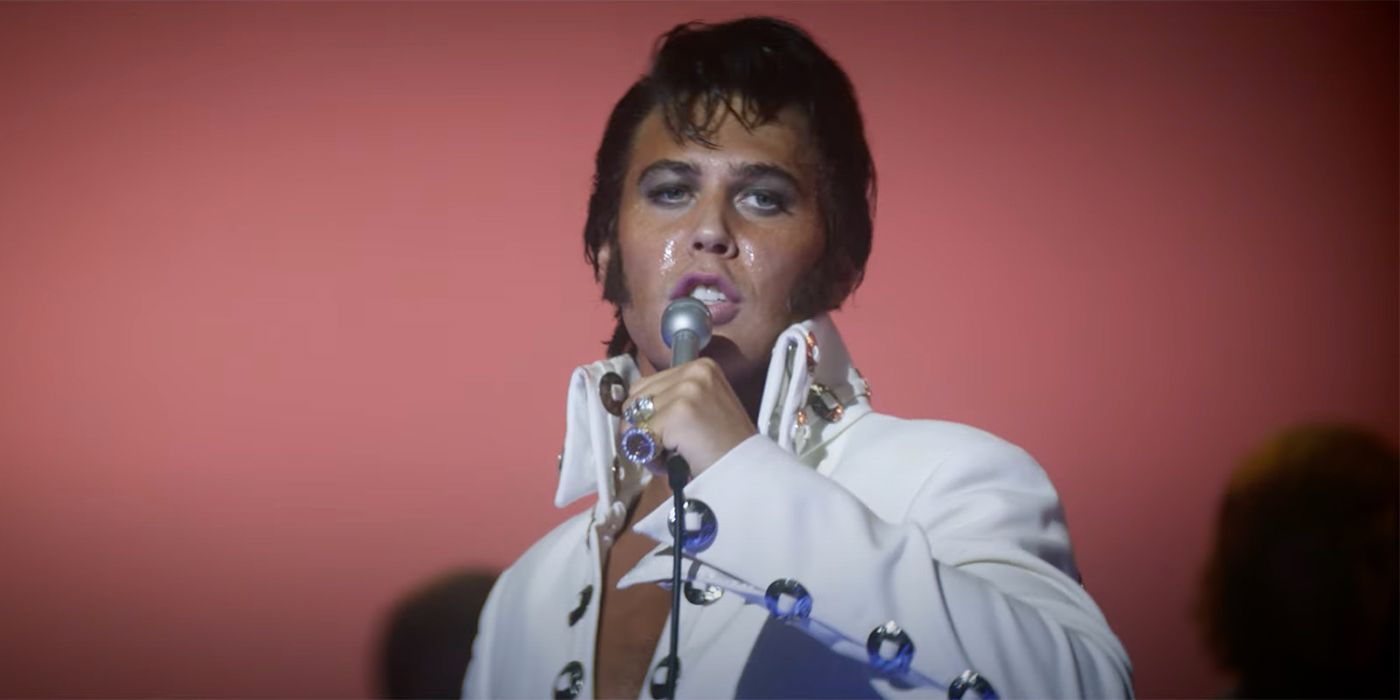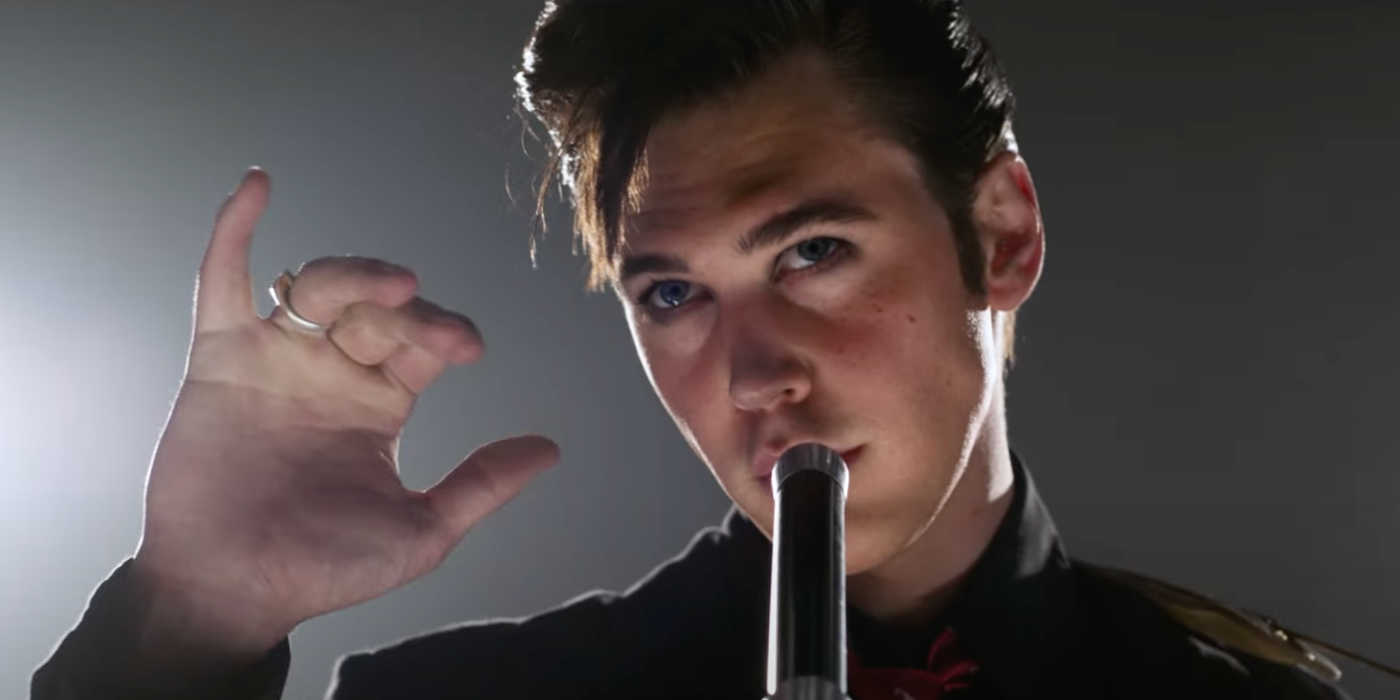In Baz Luhrmann's box-office biopic epic Elvis the aesthetic is key, the enormity of the scale is a must, but the sound is the soul. In a film dedicated to the life of a cultural king whose legacy is his rich voice and iconic appearance, so much of the film's integrity is riding on the way these factors are presented. Once again enlisting the talents of composer Elliott Wheeler and music editor Jamieson Shaw, Luhrmann opted to present Elvis Presley's music in a more authentic way by utilizing both the original tracks and actor Austin Butler's own vocal talents.
Recently, actor and granddaughter of Presley, Riley Keough, shared a clip of Butler performing Presley's "That's All Right." In the clip, Butler looks like a natural strumming his guitar and tapping his foot, and fans may be hard-pressed to determine whether Butler's croons are the product of lip-synching or his own vocals. However, when discussing how the recordings for the film were tackled, according to Wheeler, Butler personally performed each line of every performance audiences see onscreen. Instead of lip-syncing, what he and Shaw did was essentially enhance Butler's versions by splicing in Presley's recordings where necessary. To keep the authenticity of Presley on stage, Wheeler said, "...we ended up slicing [parts of] Austin’s performance. We used a lot of the breaths, grunts, and body movements that are Austin, and we’d switch back to Elvis.”
The portrayal of Presley on Butler's part, which earned him the longest-standing ovation at the Cannes festival this year, took a lot out of him. In an interview with Collider's Steve Weintraub, Butler spoke on how long after filming wrapped it took him to find himself again after his transformative performance as the King of Rock 'n' Roll. For the first half of the film, the vocals that audiences hear are primarily all Butler, belting out tune after tune of cultural classics, while maintaining Presley's iconic snarling lip and light-footed movements. That is, up until '68, when Wheeler says, "Everything after that was Elvis, and that was partly to do with the fidelity of the stems — the stereo recordings sourced from mixes of multiple individual tracks, such as drums, vocals, and bass — in this case, we were using vocal stems.” He explained that due to the quality of the later tracks, they were able to use more of Presley's original recordings by working with movement coach Polly Bennett. Together they assessed the way Presley's movements affected each breath and grunt, then applied it to Butler's movements.
As far as the score and the blending of the music, Shaw and Wheeler were tasked with storytelling through Presley's musical influences. Luhrmann reportedly spoke with a close friend of Presley's from when he was young, Sam Bell, who helped the crew piece together the styles that became the amalgamation of what Presley eventually came to be known for. Some influences include gospel from when he'd attend Pentecostal services and blues from "juke joints," which inspired the number performed by Gary Clark Jr. (Chef) as Arthur "Big Boy" Crudup in the film. Other featured artists include blues singer-songwriter B.B. King, played by Kelvin Harrison Jr., country music artist Hank Snow played by David Wenham, gospel singer and guitarist Sister Rosetta Tharpe played by Yola, and more.
Though the film is receiving mixed reviews, the effort put into bringing authenticity to Presley's image and legacy is unmistakable. All the musical artistry in the film "culminates into this big orchestral moment when Elvis walks onto the stage." The result is a dazzling six-minute arrangement and Wheeler says, "That scene had all the elements of both bringing a new contemporary artists score, the Pentecostal and the traditional Elvis recordings, together."
Elvis is out now in theaters.


